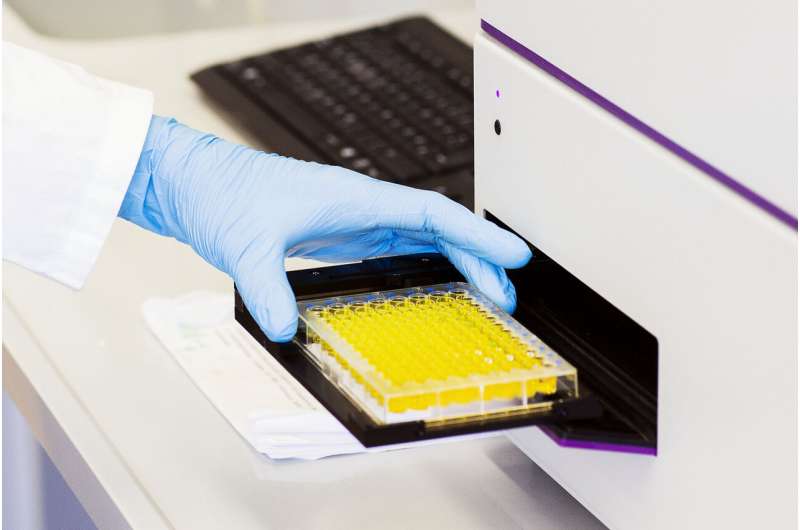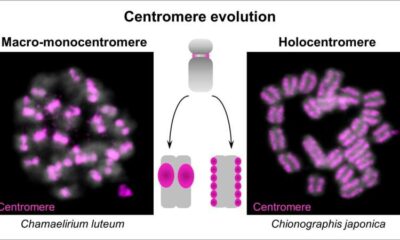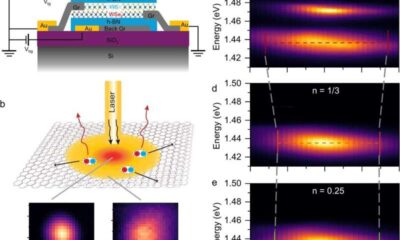Science
Researchers Discover Beta-Carotene’s Role in Enhancing Enzyme Activity

Researchers at the Technical University of Munich (TUM) have made significant strides in understanding how beta-carotene can improve enzyme efficiency under heavy substrate loads. Their findings, published in Nature Communications on July 25, 2025, address a phenomenon known as substrate inhibition, which can hinder both drug effectiveness and industrial processes.
Enzymes are crucial for various biological functions, including metabolism and industrial applications. While most enzymes increase their activity with more substrate, approximately 20% can exhibit substrate inhibition, where excessive substrate leads to a slowdown or complete halt in function. This unexpected behavior poses challenges in both medical and industrial contexts.
According to Wilfried Schwab, a professor of Biotechnology of Natural Products at TUM, “Lab experiments with certain drugs suggest that substrate inhibition may affect how medications work. When drug concentrations are too high, the reaction can slow down.” This insight underscores the importance of understanding enzyme behavior to enhance efficiency in fields such as pharmaceuticals and food production.
Understanding Substrate Inhibition
The research team focused on an enzyme derived from the tobacco plant, which plays a role in converting phenols—compounds that offer protective benefits—into forms that defend the plant against threats. This enzyme interacts with both sugar molecules and phenols, but its effectiveness can be compromised depending on the order of binding.
The researchers found that if sugar binds to the enzyme before phenols, it operates normally. Conversely, when phenols bind first, it can lead to inhibition. The study revealed that increased levels of phenols raise the likelihood of this inhibitory binding, ultimately stalling the plant’s defensive mechanisms.
Beta-Carotene’s Mitigating Effects
In a pivotal discovery, the TUM team demonstrated that beta-carotene could alleviate substrate inhibition by competing with phenols for the enzyme’s binding sites. This competition prevents an excessive number of phenols from binding first, thereby maintaining enzyme activity.
“This idea was based on earlier findings that suggested that beta-carotene may affect substrate inhibition. However, we were surprised to see that beta-carotene could actually reduce substrate inhibition,” Schwab noted.
Despite these promising findings, Schwab cautioned against viewing beta-carotene as a universal solution. He emphasized that “balance is key to proper enzyme function.” The team’s discovery not only sheds light on the role of beta-carotene but also paves the way for future research aimed at improving enzyme efficiency across various applications.
The implications of this research extend beyond plant biology. Understanding how to mitigate substrate inhibition could lead to advancements in pharmaceuticals, food production, and other industrial processes, ultimately enhancing productivity and effectiveness in these fields. The study marks a significant step forward in enzyme research and opens new avenues for exploration.
For more information, refer to the research article by Jieren Liao et al., titled “β-Carotene alleviates substrate inhibition caused by asymmetric cooperativity,” published in Nature Communications.
-

 Science2 weeks ago
Science2 weeks agoNostradamus’ 2026 Predictions: Star Death and Dark Events Loom
-

 Technology1 month ago
Technology1 month agoOpenAI to Implement Age Verification for ChatGPT by December 2025
-

 Technology6 months ago
Technology6 months agoDiscover the Top 10 Calorie Counting Apps of 2025
-

 Health4 months ago
Health4 months agoBella Hadid Shares Health Update After Treatment for Lyme Disease
-

 Health4 months ago
Health4 months agoAnalysts Project Stronger Growth for Apple’s iPhone 17 Lineup
-

 Health4 months ago
Health4 months agoErin Bates Shares Recovery Update Following Sepsis Complications
-

 Technology4 months ago
Technology4 months agoElectric Moto Influencer Surronster Arrested in Tijuana
-

 Technology5 months ago
Technology5 months agoDiscover How to Reverse Image Search Using ChatGPT Effortlessly
-

 Technology6 months ago
Technology6 months agoMeta Initiates $60B AI Data Center Expansion, Starting in Ohio
-

 Technology6 months ago
Technology6 months agoRecovering a Suspended TikTok Account: A Step-by-Step Guide
-

 Education4 months ago
Education4 months agoHarvard Secures Court Victory Over Federal Funding Cuts
-

 Technology2 months ago
Technology2 months agoDiscover 2025’s Top GPUs for Exceptional 4K Gaming Performance





















